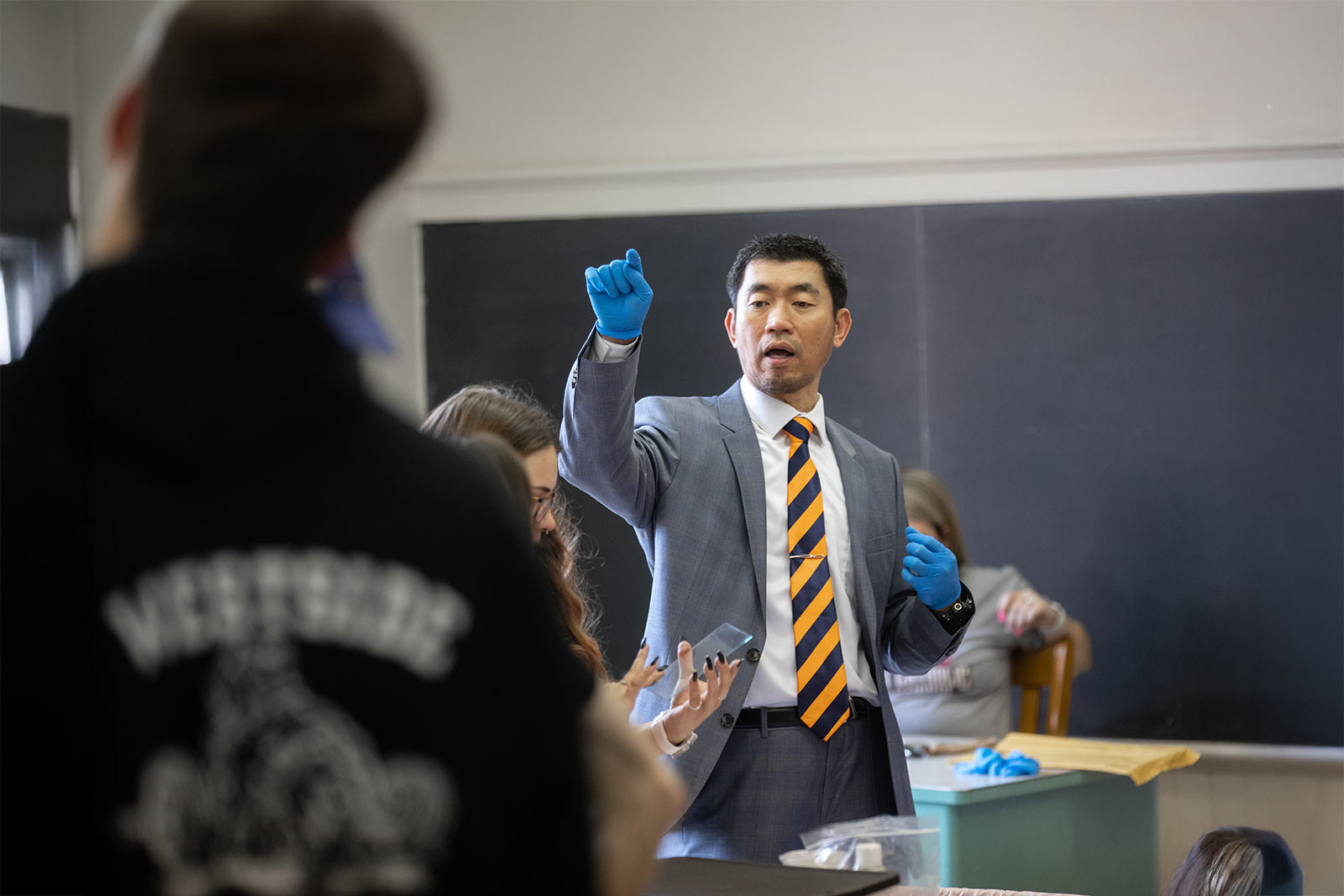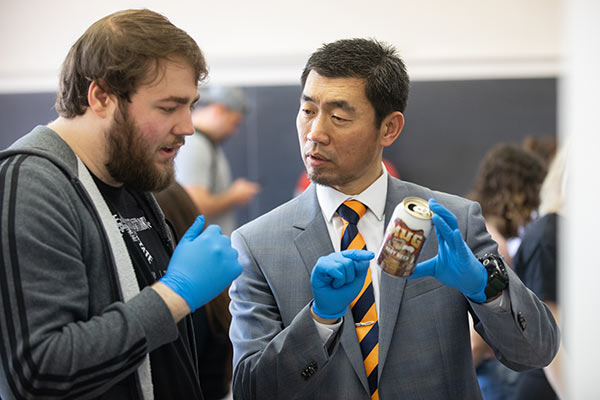Dr. Raymond Hsieh
Training “digital guardians” at the intersection of forensics and cybersecurity
A forensic scientist turned educator, Dr. Hsieh equips students to think ethically
and act technically as “digital guardians” across law, justice and cybersecurity.
Dr. Raymond Hsieh
Training “digital guardians” at the intersection of forensics and cybersecurity
A forensic scientist turned educator, Dr. Hsieh equips students to think ethically and act technically as “digital guardians” across law, justice and cybersecurity.


"My perspective is I'm building with training my student as a digital defender, or as digital guardian for our future society."
“Everyone has been impacted.” That’s how Dr. Raymond Hsieh describes today’s digital reality—where deepfakes, voice cloning and fraud touch students, parents, jurors and professionals alike. A professor of Criminal Justice on PennWest’s Cal campus, Hsieh blends an early forensic science background with information technology to prepare students as “digital guardians” who can protect people and pursue truth in a fast-changing world.
His journey began before “computer forensics” was even a term. Fascinated by how computers could enhance crime-scene evidence, he learned digital image enhancement to clarify surveillance video and ATM footage—skills that connected lab work to real-world investigations. In the classroom, that same bridge is the point. Hsieh’s courses in cyber forensics teach students to collect and analyze digital evidence, from undeleting files to tracing identity theft and online fraud. The goal isn’t just technical fluency; it’s ethical courage and critical thinking. “Seeing is not believing now,” he cautions. “Your eye not seeing doesn’t mean it does not exist.”
Hsieh’s philosophy widens the aperture of cybersecurity beyond IT alone. Lawyers, psychologists, law-enforcement officers and analysts all confront digital evidence and AI-generated content. So he scaffolds both the legal/ethical and technical dimensions: understanding chain of custody, reading digital artifacts, and distinguishing authentic signals from fabricated ones. The result is a defender mindset—prevention where possible, evidence-driven investigation when needed.
Students feel that clarity and care. They credit Hsieh for opening doors—from paid placements in a cybersecurity lab to courses where they manually undelete files and trace fraud patterns. “It really inspired me to put that love for computers with criminal justice,” says Lauren Sims; Shenae Coote adds, “Might as well jump in and learn more about cybersecurity.” Hsieh also helps students translate curiosity into next steps—arranging internships, connecting them with mentors, and celebrating each time a path becomes clear. “Every time I see a student clarify their career path, I’m very happy to see it happen,” he says.
Technology keeps advancing; the preparation keeps pace. Hsieh continually updates coursework around emerging threats, from deepfake detection to voice-clone analysis and evolving scam typologies. His promise to students is steady and practical: learn the tools, sharpen judgment, and “always disclose the truth in the digital age.” Graduates take that mindset into courtrooms, labs, agencies and SOCs—where PennWest’s blend of rigor and relevance meets the moment.